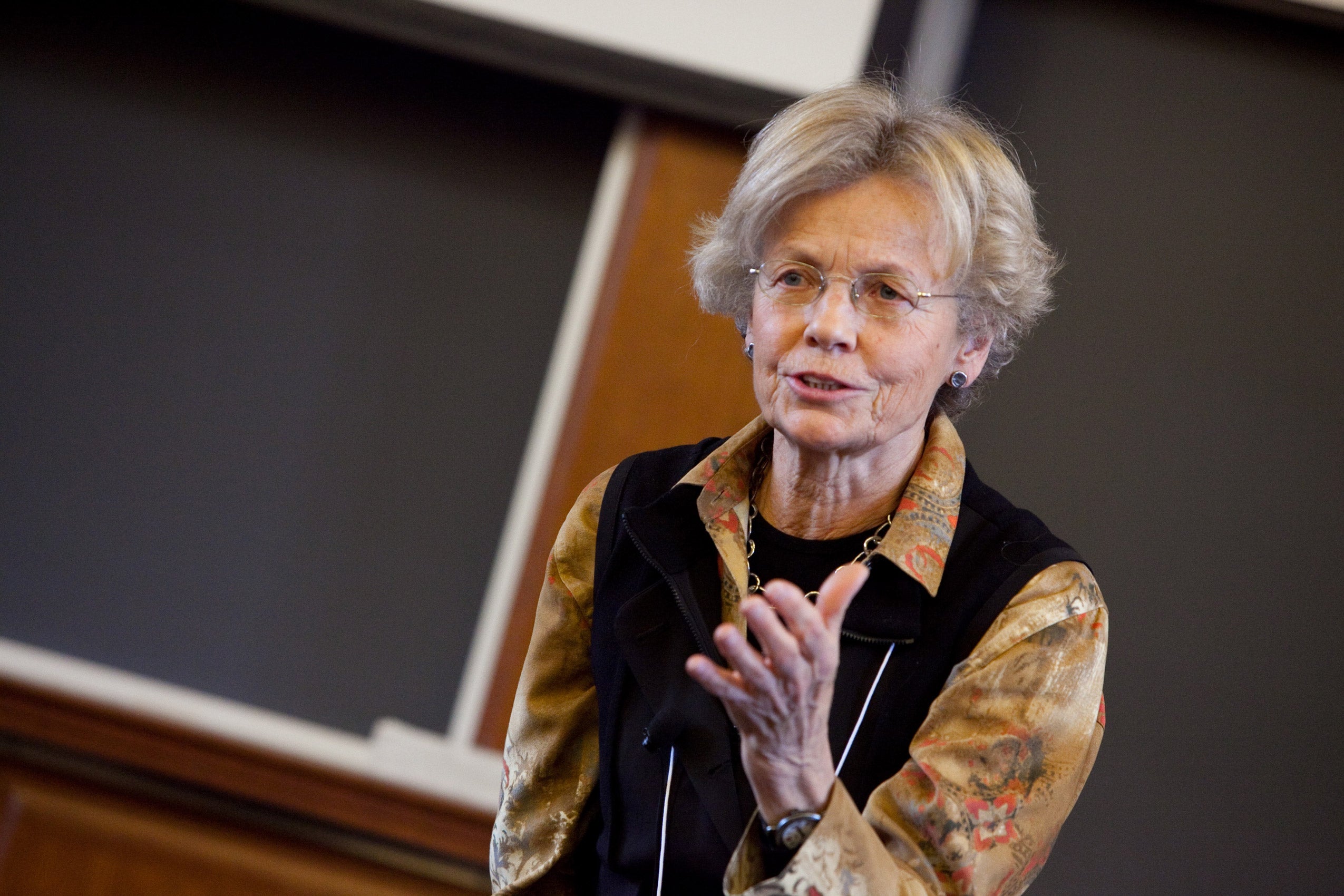The Boston area was riveted this summer to the story of an unidentified child who washed up in a trash bag on a Boston Harbor beach. When the two-and-a-half-year-old girl was identified three months later, the public learned that her mother and her mother’s boyfriend were heroin addicts and that Massachusetts Department of Children and Families had previously investigated the home. Public concern intensified over how at-risk children are monitored and when they should be placed in foster care or put up for adoption.
Elizabeth Bartholet ’65, the Morris Wasserstein Public Interest Professor of Law at Harvard Law School, has been at the center of many public conversations following the discovery of the child, once known as Baby Doe, but since identified as Bella Bond. Bella’s mother’s boyfriend was charged with her murder, and her mother has been charged as an accessory to her murder.
A nationally renowned child welfare advocate, Bartholet is the founding Faculty Director of Harvard Law School’s Child Advocacy Program. Several recent news stories and interviews elucidate her views on child protection issues and her recommendations on how to reform the broken system./
A recent study by the New England Center for Investigative Reporting reported by The Boston Globe and New England Cable Network investigated the kinds of mistakes at all levels of the child-welfare process that put children at risk. The study found that between 2009 and 2013, 110 children died from abuse and neglect in Massachusetts, and one-third of those were under DCF care. Several case studies examined in the report “scream[ed] out” that social workers were often more concerned with keeping families together than ensuring children’s safety, Bartholet said in The Boston Globe. “Best interest of the child is clearly not the standard,” especially for children in the lower risk category, she said.
Bartholet was interviewed on TV and radio programs discussing whether child welfare agencies could have taken steps to prevent Bella’s death. Bartholet has long criticized a “two-track” system used in Massachusetts and other states that puts children either on a track where they are closely monitored by child-welfare agencies or puts them on a second “low-risk” track, in which parents have a choice of whether to accept state services.
“Even on the traditional track, there is not enough intervention, there is not enough surveillance, there’s not enough protection for kids,” she told WRKO. “I think we ought to be moving in the direction of beefing up that traditional track. And to move in this other direction is simply a matter of a deliberate policy of putting children at greater risk. We have a system that does not value the child’s welfare even though it keeps claiming to.”
“The basis of our system is parents’ rights and valuing parent autonomy,” she continued, adding that she hoped these recent cases would “move our governor and our legislators to say we really should take kids’ safety and welfare seriously.”
A needed reform that Bartholet advocates is expanding outreach to families to become foster parents. Currently, middle class families are not typically recruited for foster care. Instead, recruitment is usually from welfare roles and in a child’s neighborhood. She said there is an “enormous population of people who would love to foster and adopt kids if they had a chance. But we have a system that pushes those people away.”
Interviewed on WGBH, Bartholet expressed her concern that Bella had been born drug-affected and sent home with a drug-addicted mother, who had already had two children removed by DCF. She said the problem is as much about ideology as it is about limited funds for child-welfare agencies, because foundations are pushing agencies to be “yet more family-preservation oriented.”
Bartholet said, “The legal system treats kids as if they belong near 100 percent with the biological parent. In fact, part of what we need to do is intervene more readily and take some of these high-risk kids away from the parents.”
One of the HLS courses Bartholet teaches is called “The Art of Social Change.” The class examines strategies for changing law and policy, focusing on the areas of child welfare (abuse and neglect, foster care, adoption), education, and juvenile justice.
***
Related reading
Parental custody? Not if they’re addicts (The Boston Globe)
DCF Shift Puts Children’s Safety At Risk (Hartford Courant)
Faculty Director Elizabeth Bartholet Awarded 2015 Pro Humanitate Child Advocacy Award
Bartholet receives award from the National Human Rights Committee of Qatar
